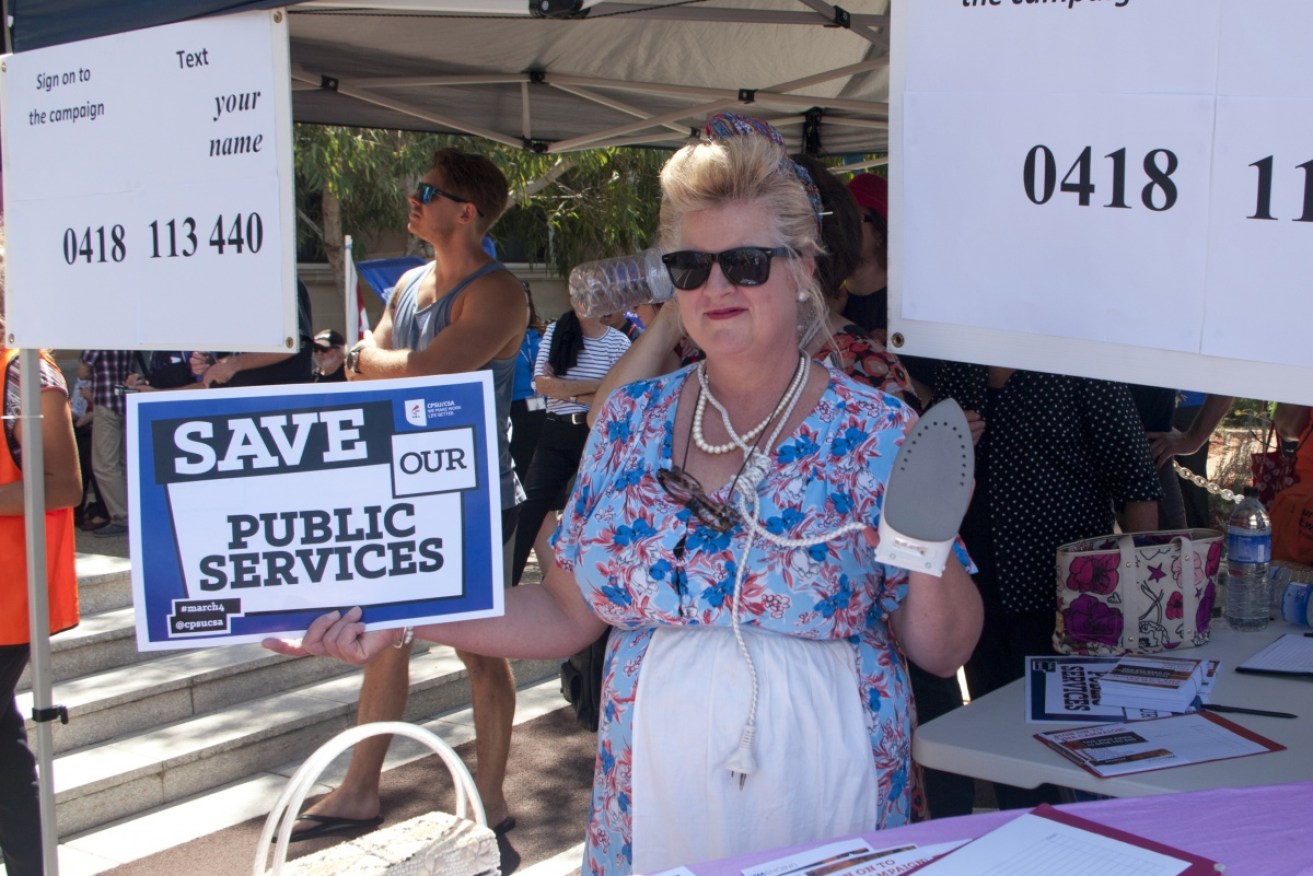Penalty rates report due

A Perth protestor dresses as a housewife in protest of the inquiry. Photo: AAP
The Productivity Commission is expected to call for an overhaul of penalty rates in a final report into workplace relations due today.
The report is expected to recommend bringing Sunday penalty rates in some industries in line with time-and-a-half paid on Saturdays, reducing the overall pay.
This would include those in the entertainment, hospitality and retail industry, but not other workers, including emergency workers such as paramedics.
• Penalty rates critical for young workers
• Labor taunted on penalty rates
• The dirty trick used to pay you less
Unions and the Federal Opposition are gearing up for a fight, saying those who are forced to work on Sundays should not have their conditions cut.

A Perth protestor dresses as a housewife in protest of the inquiry. Photo: AAP
Labor’s workplace spokesman Brendan O’Connor urged the Government to reject the expected proposal.
“For so many workers it will mean a cut of up to 10 per cent of their income,” he said.
“This is an attack on the lowest paid workers of Australia.
“Retail and tourist workers, hospitality workers, these people do not receive large amounts of money … this will be a big blow for the household budget.”
But business groups have said the move would help take the pressure off the retail and fast food sectors.
The Federal Government had previously downplayed any changes to Sunday penalty rates, saying it was a matter for the Fair Work Commission.
Union group United Voice has fought to keep Sunday penalty rates.
National secretary Jo-Anne Schofield said retail and hospitality workers could not afford to take a pay cut.
People in retail and hospitality are on modest earnings, so they can’t afford to take a pay cut,” she said.
“We estimate if the Productivity Commission’s draft recommendation goes through, it would put some of our members back a couple of years.
“So they will be going back to what they were earning two years ago, and very few people can afford that, particularly people who are struggling at the bottom.”







